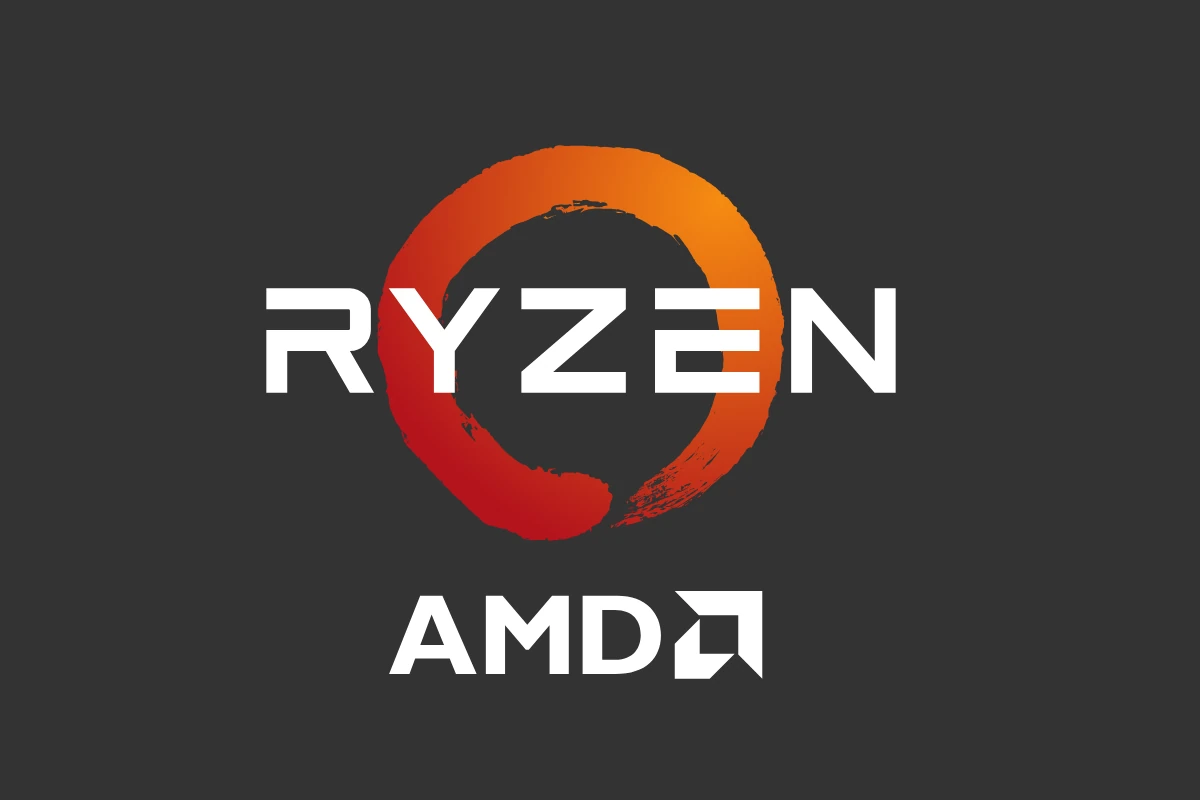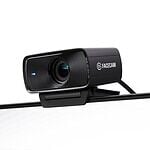AMD’s Ryzen 4000 series brings powerful performance to desktops and laptops. These processors use AMD’s Zen 2 architecture and 7nm manufacturing process. The Ryzen 4000 series offers up to 8 cores and 16 threads, delivering strong CPU and graphics capabilities for a wide range of computing tasks.
These chips come in two main flavors – desktop APUs with built-in graphics and mobile processors for laptops. The desktop APUs provide high-definition gaming without a dedicated graphics card. For laptops, Ryzen 4000 mobile chips offer a balance of performance and efficiency.
Benchmark results show impressive gains over previous generations. The Ryzen 7 Pro 4700G desktop APU achieved up to 90% better performance than the last-gen flagship in 3DMark tests. This leap in speed and efficiency makes Ryzen 4000 a compelling choice for your next PC build or laptop purchase.
| Ryzen 4000 Series | Cores/Threads | Base Clock | Max Boost Clock |
|---|---|---|---|
| Ryzen 7 4700G | 8/16 | 3.6 GHz | 4.4 GHz |
| Ryzen 5 4600G | 6/12 | 3.7 GHz | 4.2 GHz |
| Ryzen 3 4300G | 4/8 | 3.8 GHz | 4.0 GHz |
AMD Ryzen 4000 Series: A Deep Dive
AMD’s Ryzen 4000 series brought significant improvements to laptop performance. It offered impressive power efficiency and strong integrated graphics. This made it a popular choice for thin and light laptops. The series included CPUs for both laptops and desktops. However, the laptop CPUs gained more popularity. They offered a compelling mix of performance and battery life.
Ryzen 4000 Series for Laptops
The Ryzen 4000 series for laptops used the “Renoir” architecture. It was built on a 7nm process. This allowed for more transistors in a smaller space. The result was better performance and lower power consumption. The integrated graphics also saw a significant upgrade. They used the Vega architecture. This provided a noticeable boost over the previous generation.
Some of the popular CPUs in this series include:
- Ryzen 5 4500U
- Ryzen 5 4600U
- Ryzen 7 4700U
- Ryzen 7 4800U
- Ryzen 9 4900HS
- Ryzen 9 4900H
These CPUs powered a wide range of laptops. They catered to different needs and budgets. The Ryzen 5 4500U and 4600U were popular choices for everyday use. The Ryzen 7 4700U and 4800U offered a good balance of performance and value. The Ryzen 9 4900HS and 4900H were top-of-the-line CPUs. They provided excellent performance for demanding tasks.
Ryzen 4000 Series for Desktops
The Ryzen 4000 series for desktops was codenamed “Renoir.” It was a more limited release compared to the laptop version. These CPUs used the AM4 socket. This made them compatible with existing motherboards. However, they faced stiff competition from the Ryzen 3000 series. The Ryzen 3000 series offered similar performance at a lower price.
One notable CPU in this series was the Ryzen 7 4700G. It offered eight cores and integrated graphics. This made it a good choice for budget gaming PCs.
| Feature | Ryzen 4000 Series (Laptop) | Ryzen 4000 Series (Desktop) |
|---|---|---|
| Architecture | Renoir | Renoir |
| Process | 7nm | 7nm |
| Socket | FP6 | AM4 |
| Integrated Graphics | Vega | Vega |
| Target Market | Laptops | Desktops |
| Notable CPUs | Ryzen 5 4500U, Ryzen 7 4700U, Ryzen 9 4900H | Ryzen 7 4700G |
Ryzen 4000 Series vs. Intel 10th Gen
The Ryzen 4000 series competed directly with Intel’s 10th generation Core series. In many cases, the Ryzen 4000 series offered better performance, especially in multi-core tasks. It also provided superior integrated graphics. This made it a popular choice for content creators and gamers.
However, Intel still held an edge in single-core performance. This was important for some applications and games. The choice between Ryzen and Intel often depended on the specific needs and use case.
Ryzen 5000 Series: The Next Generation
While the Ryzen 4000 series was a success, AMD didn’t stop there. They followed it up with the Ryzen 5000 series. This series brought further improvements in performance and efficiency. It used the Zen 3 architecture. This architecture delivered a significant increase in instructions per clock (IPC). The result was a noticeable performance boost in various applications and games.
The Ryzen 5000 series also offered better power management. This led to improved battery life in laptops. Some of the popular CPUs in this series include:
- Ryzen 5 5500U
- Ryzen 5 5600U
- Ryzen 7 5700U
- Ryzen 7 5800U
- Ryzen 9 5900HX
- Ryzen 9 5900HS
These CPUs continued AMD’s success in the laptop market. They offered a compelling combination of performance, efficiency, and value.
Technical Specifications
AMD’s Ryzen 4000 series processors bring significant advancements in performance and efficiency. These chips offer impressive core counts, clock speeds, and integrated graphics capabilities that set new standards for mobile computing.
Core Architecture
The Ryzen 4000 series uses AMD’s Zen 2 architecture. This design allows for up to 8 cores and 16 threads in a mobile package. The chips support simultaneous multithreading (SMT) for improved multitasking performance.
Zen 2 brings a 15% increase in instructions per clock (IPC) compared to previous generations. This boost translates to better single-threaded performance across various applications.
The processors feature a modular design with separate CPU and I/O dies. This layout improves efficiency and allows for better scalability across different product segments.
Clock Speeds and Efficiency
Ryzen 4000 mobile processors offer impressive clock speeds while maintaining energy efficiency. Base clocks range from 2.0 GHz to 3.0 GHz depending on the model.
Boost clocks can reach up to 4.3 GHz in high-performance configurations. This allows for snappy responsiveness in single-threaded tasks.
The 7nm manufacturing process contributes to the series’ excellent power efficiency. You’ll find these chips in thin and light laptops without sacrificing battery life.
| Processor Model | Base Clock | Boost Clock | TDP |
|---|---|---|---|
| Ryzen 7 4800H | 2.9 GHz | 4.2 GHz | 45W |
| Ryzen 5 4600U | 2.1 GHz | 4.0 GHz | 15W |
| Ryzen 3 4300U | 2.7 GHz | 3.7 GHz | 15W |
Cache and Memory Support
The Ryzen 4000 series features a robust cache system. Each processor includes L1, L2, and L3 cache levels for optimal performance.
L3 cache sizes vary by model:
- 8MB for 8-core processors
- 4MB for 6-core processors
- 2MB for 4-core processors
These chips support DDR4 memory with speeds up to 3200 MHz. This ensures fast data access and smooth multitasking.
PCIe 3.0 support provides connectivity for high-speed storage and external graphics cards in some laptop models.
Integrated Graphics Performance
Ryzen 4000 mobile processors feature integrated Radeon graphics based on the Vega architecture. This offers significant improvements over previous generations.
The number of Vega compute units varies by model:
- Up to 8 CUs in high-end processors
- 6 CUs in mid-range options
- 5 CUs in entry-level chips
These integrated GPUs support features like:
- DirectX 12
- Vulkan
- Hardware video encoding and decoding
You can expect smooth 1080p gaming at medium settings in many popular titles. The graphics performance is especially impressive considering the power efficiency of these mobile chips.
Product Lineup
AMD’s Ryzen 4000 series offers processors for various computing needs. The lineup includes options for enthusiasts, high-performance users, mainstream consumers, and businesses.
Ryzen 9 Series for Enthusiasts
The Ryzen 9 4000 series targets power users and enthusiasts. It features the Ryzen 9 4900H and 4900HS for high-end laptops. These processors boast 8 cores and 16 threads.
The 4900H has a base clock of 3.3 GHz and can boost up to 4.4 GHz. It’s designed for larger laptops with better cooling.
The 4900HS is optimized for thin and light laptops. It runs at a lower 35W TDP while maintaining high performance.
Both chips excel in tasks like video editing, 3D rendering, and gaming. They compete directly with Intel’s top mobile offerings.
Ryzen 7 for High-Performance Computing
Ryzen 7 4000 processors balance power and efficiency. The Ryzen 7 4800H is a standout in this category. It offers 8 cores and 16 threads.
With a base clock of 2.9 GHz and boost up to 4.2 GHz, it delivers strong performance for demanding tasks. You’ll find it in gaming laptops and mobile workstations.
These chips handle multitasking, content creation, and gaming with ease. They provide a noticeable upgrade over previous-gen Ryzen mobile processors.
Ryzen 7 4000 series offers a compelling alternative to Intel’s Core i7 mobile chips. They often provide better multi-core performance at a similar price point.
Ryzen 5 and Ryzen 3 for Mainstream Users
The Ryzen 5 and Ryzen 3 4000 series cater to everyday computing needs. These processors balance performance and affordability.
Ryzen 5 4600H features 6 cores and 12 threads. It’s well-suited for mid-range gaming laptops and productivity machines.
Ryzen 3 4300U offers 4 cores and 4 threads. It’s designed for thin and light laptops focused on everyday tasks.
These processors handle web browsing, office applications, and light gaming smoothly. They provide good value for budget-conscious buyers.
Compared to Intel counterparts, Ryzen 5 and 3 often offer better integrated graphics performance. This makes them attractive for laptops without dedicated GPUs.
Ryzen Pro 4000-Series for Business
The Ryzen Pro 4000-series targets business and enterprise users. These processors combine performance with enhanced security features.
Ryzen 7 Pro 4750G stands out with 8 cores and 16 threads. It’s suitable for high-performance desktops and workstations.
Ryzen 3 Pro 4350G offers 4 cores and 8 threads. It’s ideal for office PCs and entry-level workstations.
Pro series processors include features like AMD Memory Guard and AMD Secure Processor. These enhance data protection and system security.
They also support remote management tools. This makes them attractive for IT departments managing large fleets of computers.
| Model | Cores/Threads | Base Clock | Boost Clock | TDP |
|---|---|---|---|---|
| Ryzen 9 4900H | 8/16 | 3.3 GHz | 4.4 GHz | 45W |
| Ryzen 7 4800H | 8/16 | 2.9 GHz | 4.2 GHz | 45W |
| Ryzen 5 4600H | 6/12 | 3.0 GHz | 4.0 GHz | 45W |
| Ryzen 3 4300U | 4/4 | 2.7 GHz | 3.7 GHz | 15W |
Performance Benchmarks
AMD’s Ryzen 4000 series showcases significant improvements in processing power, graphics capabilities, and energy efficiency. Benchmark results reveal impressive gains across various workloads and usage scenarios.
Comparisons with Previous Generations
The Ryzen 4000 series demonstrates substantial performance leaps over its predecessors. In Cinebench R20, the Ryzen 9 4900HS outperforms Intel’s Core i9 mobile chips. This 8-core/16-thread processor shows up to 90% improvement compared to previous-gen APUs.
The Ryzen 5 Pro 4400G, a 6-core APU, performs up to 56.2% faster than the Ryzen 5 3400G. These gains extend across the lineup, with even mid-range chips like the Ryzen 7 4700U beating Intel’s H-class mobile processors.
In 7-Zip compression tests, Ryzen 4000 CPUs show marked improvements, highlighting their enhanced multi-threading capabilities.
Gaming and Content Creation Benchmarks
Ryzen 4000 APUs deliver strong CPU and graphics performance, making them suitable for both gaming and content creation. The integrated graphics in high-end 4000 series APUs surpass the performance of dedicated GPUs like the RX 550.
In 3DMark Time Spy, these APUs score impressively, outperforming many entry-level dedicated graphics cards. This makes them ideal for casual gaming and light content creation tasks without the need for a separate GPU.
For video editing and 3D rendering, Ryzen 4000 CPUs excel in benchmarks like HandBrake, offering game-changing performance for laptops.
Power Efficiency and Battery Life
The 7nm architecture of Ryzen 4000 series contributes to impressive power efficiency. This translates to longer battery life in laptops without compromising performance.
In typical usage scenarios, Ryzen 4000-powered laptops often outlast their Intel counterparts. The improved power management allows for sustained high performance even in thin and light laptops.
Benchmark results show that Ryzen 4000 CPUs maintain their performance advantage while consuming less power than comparable Intel processors. This efficiency is particularly noticeable in tasks that utilize all cores, where the Ryzen chips can complete workloads faster and return to low-power states more quickly.
| Model | Cores/Threads | Base Clock | Boost Clock | TDP |
|---|---|---|---|---|
| Ryzen 9 4900HS | 8/16 | 3.0 GHz | 4.3 GHz | 35W |
| Ryzen 7 4700U | 8/8 | 2.0 GHz | 4.1 GHz | 15W |
| Ryzen 5 Pro 4400G | 6/12 | 3.7 GHz | 4.3 GHz | 65W |
Market Impact and Availability
AMD’s Ryzen 4000 series processors have significantly influenced the laptop and desktop markets. These chips offer strong performance and value, attracting both consumers and manufacturers.
Laptop and Desktop Market Adoption
Major laptop makers have embraced Ryzen 4000 processors. ASUS ROG Zephyrus G14 and HP Omen 15 are popular gaming laptops featuring these chips. Lenovo has also incorporated Ryzen 4000 CPUs into their lineups.
Desktop adoption has been slower but steady. AMD released 18 new CPU processors with integrated Radeon Graphics for prebuilt desktop PCs. This move aims to increase AMD’s presence in the prebuilt market.
The table below shows key Ryzen 4000 models:
| Model | Type | Core Count | Base Clock |
|---|---|---|---|
| 4750G | Desktop | 8 | 3.6 GHz |
| 4650G | Desktop | 6 | 3.7 GHz |
| 4800H | Laptop | 8 | 2.9 GHz |
| 4800U | Laptop | 8 | 1.8 GHz |
Consumer Reception
Consumers have responded positively to Ryzen 4000 series processors. The chips offer strong CPU and graphics performance, especially in laptops. This has led to increased demand for AMD-powered devices.
Gaming enthusiasts appreciate the powerful performance in compact laptops. The combination of Ryzen 4000 CPUs and AMD FreeSync technology provides smooth gaming experiences.
Availability was initially limited, with the first devices appearing in Q3 2020. As production ramped up, more options became available across various price points. Premium laptops with Ryzen 7 4800H or 4800U processors typically cost over $1,000.
Frequently Asked Questions
AMD Ryzen 4000 series processors offer impressive performance and efficiency. These CPUs cater to various computing needs from everyday tasks to demanding workloads.
What are the specifications of the AMD Ryzen 4000 series processors?
The AMD Ryzen 4000 series processors feature Zen 2 architecture. They come with up to 8 cores and 16 threads.
Clock speeds vary by model but can reach up to 4.3 GHz boost. The CPUs are built on a 7nm process for improved efficiency.
How does the AMD Ryzen 7 4000 series compare to Intel’s i7 processors?
AMD Ryzen 7 4000 series often outperforms Intel i7 processors in benchmarks. They typically offer better multi-threaded performance and power efficiency.
Ryzen 7 4000 series can compete with or surpass Intel i7 in tasks like video editing and 3D rendering. Gaming performance is comparable in most cases.
What are the performance benchmarks for AMD Ryzen 5 4000 series laptops?
AMD Ryzen 5 4000 series laptops show strong performance in various benchmarks. They excel in multi-threaded workloads and offer good single-core performance.
In Cinebench R15, some Ryzen 5 4000 models can compete with Intel’s higher-end 10750H. They also perform well in 3DMark tests like TimesSpy and FireStrike.
What is the recommended retail price for the AMD Ryzen 4000 series CPUs?
Prices for AMD Ryzen 4000 series CPUs vary by model. Entry-level options start around $150, while high-end models can cost up to $450.
Specific pricing may differ based on retailer and availability. It’s best to check current market prices for the most accurate information.
Which laptops are equipped with the AMD Ryzen 4000 series processors?
Many major laptop manufacturers offer models with AMD Ryzen 4000 series processors. These include brands like Lenovo, HP, ASUS, and Acer.
Popular models include the Lenovo Legion 5, HP Envy x360, and ASUS ROG Zephyrus G14. The availability of specific models may vary by region.
How does the AMD Ryzen 3 4000 series perform for daily computing tasks?
AMD Ryzen 3 4000 series processors handle daily computing tasks with ease. They offer good performance for web browsing, office applications, and light multitasking.
These CPUs can also handle light gaming and basic content creation. Their efficiency makes them suitable for thin and light laptops with good battery life.
| Ryzen 4000 Series | Cores/Threads | Base Clock | Boost Clock | TDP |
|---|---|---|---|---|
| Ryzen 7 4800H | 8/16 | 2.9 GHz | 4.2 GHz | 45W |
| Ryzen 5 4600H | 6/12 | 3.0 GHz | 4.0 GHz | 45W |
| Ryzen 3 4300U | 4/4 | 2.7 GHz | 3.7 GHz | 15W |







